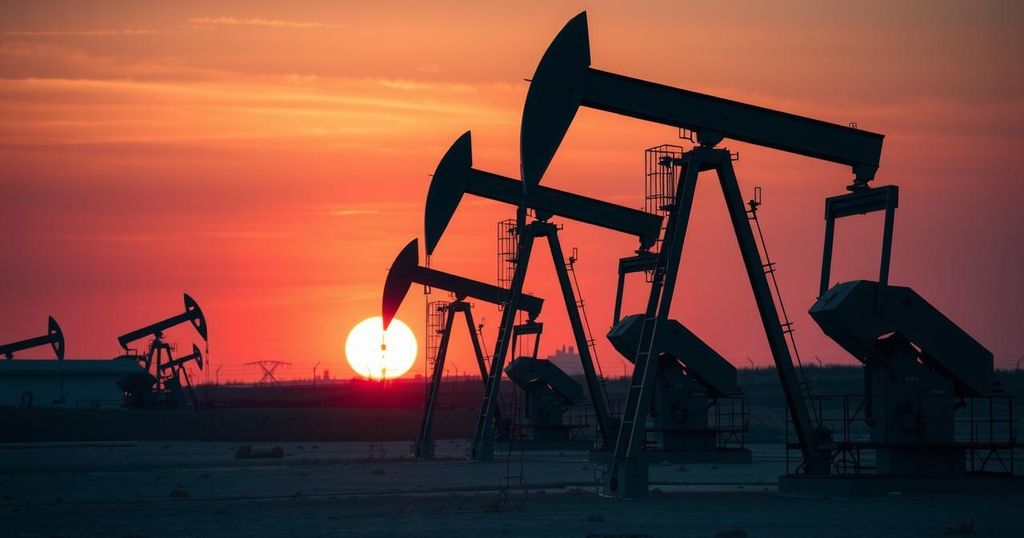President Trump’s cancellation of foreign oil licenses for Venezuela threatens to increase inflation and currency depreciation, posing severe economic challenges. The move may result in a loss of up to $4.5 billion in oil revenues, potentially escalating inflation from 48% to 80%. Analysts anticipate the cancellation will limit private sector growth due to reduced foreign currency supply.
U.S. President Donald Trump’s recent decision to cancel foreign oil licenses for operations in sanctioned Venezuela is expected to exacerbate inflation within the country. This cancellation poses a significant economic challenge for Venezuelan President Nicolas Maduro, whose administration has struggled to manage an economy heavily reliant on crude exports, which constitute approximately 85% of the nation’s income. Analysts estimate this cancellation could result in a loss of between $4 billion and $4.5 billion in oil revenue.
Economists, including Jose Guerra from the Venezuelan Finance Observatory, have highlighted that suspending oil licenses will lead to diminished oil production and a decrease in related services. This reduction is likely to impact foreign currency flow into Venezuela, resulting in further devaluation of the bolivar and increased consumer prices. The challenges have intensified following the U.S. sanctions imposed since 2019, which had previously granted some oil companies temporary licenses for exports.
The Biden administration had previously authorized Chevron to resume its operations in Venezuela, reflecting a shift in U.S. policy aimed at addressing debt recovery. However, Trump’s retraction of Chevron’s license, coupled with accusations against Maduro’s government regarding electoral reforms, raises concerns about future economic stability. Venezuelan authorities have maintained that Maduro’s election was legitimate, contrasting with claims from various countries regarding opposition victories.
The cancellation of oil licenses has prompted a decline in Venezuelan dollar bonds, with the 2027 maturity and PDVSA 2020 bonds showing significant price drops. This is indicative of the market’s response to heightened uncertainty following Trump’s announcement, which analysts at BancTrust & Co. suggest might serve as a negotiation strategy regarding U.S. deportation policies for Venezuelan migrants.
Despite previous improvements due to Chevron’s contributions, the ongoing economic outlook suggests that inflation may rise substantially. Analysts estimate inflation could climb from the current reported rate of 48% to approximately 80% amid continued currency depreciation. The restriction on foreign currency inflow is anticipated to impose limits on private sector growth, as pointed out by Conindustria’s Luigi Pisella.
The cancellation of oil licenses by President Trump significantly threatens Venezuela’s economic stability, potentially leading to increased inflation and devaluation of the bolivar. As the Venezuelan government combats economic challenges, the loss of foreign oil revenues may severely limit its financial capacity. Future developments in U.S.-Venezuela relations will be crucial in determining the country’s economic trajectory and inflation rates.
Original Source: www.tradingview.com






